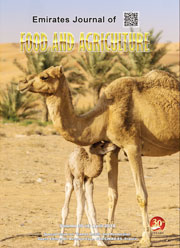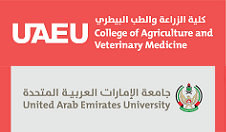Marine Algal Extract as a Biostimulant to Improve Tolerance to Salinity in Lettuce Plants
DOI:
https://doi.org/10.9755/ejfa.2023.3199Abstract
The purpose of this study was to investigate the impact of marine algal extract as foliar spray on growth, physiological, mineral composition, different osmoprotectant levels, various parts of antioxidant system, and gene expression of greenhouse lettuce (Lactuca sativa L.) plants grown under saline conditions (50mM and 100mM). Through LC/MS analysis, the algal extract's phenolic composition was determined by its abundance in quinic acid, gallic acid, kaempferol and luteolin. The concentration of leaf proline increased while the biomass production, chlorophyll fluorescence, SPAD index and mineral composition all decreased as a result of salt stress. The salt-stress tolerance mechanism in lettuce involved the expression of genes that encode antioxidant enzymes, including LsSOD, LsCAT, and LsAPX, in both stressed and control plants, which demonstrates their important roles. The findings revealed that plants that were treated with marine algal extract had a greater ability to handle salt challenge, as evidenced by a significant (p < 0.05) increase in plant growth, SPAD index, Fv/Fm ratio, a better nutritional status in addinto a better osmoprotection against salt stress. Malondialdehyde level, Hydrogen peroxide and stability index levels were significantly decreased. Furthermore, the antioxidant system saw a significant improvement, as demonstrated by the increased activity of catalase (CAT), superoxide dismutase (SOD), catalase (CAT) and ascorbate peroxidase (APX) under moderate stress conditions (50mM) and more abundant LsCAT transcripts in the stressed plants. Overall, our findings indicate that marine algal extract appears to be an effective biostimulant product for treating lettuce under saline conditions.
Keywords: antioxidant enzymes, chlorophyll fluorescence, gene expression, growth performance, Lactuca sativa L., marine algal extract, mineral composition, osmoprotectants.
Downloads
Published
How to Cite
Issue
Section
Copyright (c) 2023 Dhouha Aloui, Fatma Kalleli, Mahmoud M’Hamdi, Mariem Manaa, Ghassen Abid, Chahine Karmous

This work is licensed under a Creative Commons Attribution-NonCommercial 4.0 International License.










 .
. 